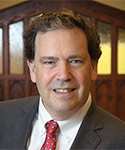November 14, 2017
Excerpt from ‘Divergent Church: The Bright Promise of Alternative Faith Communities’

In this excerpt from the introduction to their new book, Tim Shapiro and Kara Faris say that congregations aren’t going away, and neither is congregating. Creative, alternative faith communities are finding new ways to connect to the Divine.
A new kind of congregation is emerging, one in which tried and true practices are expressed in creative ways. To develop innovative ways of expressing these practices, talented leaders — both clergy and laity — are developing congregations shaped by unique, contemporary expressions of time-honored religious practices.
The focus of these new, emerging congregations unfolds naturally from their setting. These congregations almost always have a focus beyond worship itself: growing and serving food, collaborating with other nonprofits, providing resources for musical and theatrical performance, befriending the homeless, celebrating Appalachian culture, and much more. The focus itself does not constitute the tried and true practices expressed in creative ways. However, the focus is upheld by time-honored practices such as shaping community, conversation, artistic expression, breaking bread, community engagement, and hospitality. The creativity comes from the stuff of the community, not from something that can be acquired off the shelf from a distant location. This juxtaposition of tried and true religious practices expressed in a highly contextualized manner leads to what we call divergent churches.
The kinds of congregations we learned from take many different forms. These divergent communities include nonprofit/congregation hybrids; multicultural communities; coffee shop, pub, and food-oriented churches; businesses combined with churches; churches focused on a particular social need like homelessness or housing; congregations of particular groups of people like cowboys or members of the Lesbian, Gay, Bisexual, Transgender, Queer (LGBTQ) community; house churches or dinner table churches; gatherings that have a spiritual intent but may or may not meet the definition of a congregation; satellites and multisites; denominational church plants that do not look like previous efforts; and so forth.
Yet, the visible innovations aren’t the only creative expression of these congregations. What is most striking about these divergent congregations is how the leadership has taken a time-tested practice and made it shiny and new in their present context. Such reconstituted practices bring people closer to one another and to God.
We wrote this book as a witness for these congregations. We believe they represent a bright future for faith communities. That bright promise is born out of discontent and critique of some expressions of Christian religious life, but also — and more importantly — ingenuity, persistence, risk-taking, patience, urgency, and deep tugs on the soul for something new. The premise of this book is that people from many representations of religiosity and belief are creating faith communities that reflect the basic human need for connection to the Divine, for connection to one another, and to contribute to the flourishing of the world. …
Through this book, we are witnesses to an awakening. We’re asking others to be awake to it as well. Our aim is to demonstrate the importance of simply (or not so simply) being aware to what changes are happening and who’s making them and why. Listening to another and then telling a story is a simple concept in terms of human interaction. Yet, we think bearing witness to something that is good and life-giving has an exquisite purpose.
Something essential to being human is at stake. What is at stake is more than the survival of the church. What is at stake is more than organizational vibrancy as it relates to congregational life. What is at stake is the human yearning for meaning and transcendence.
Making meaning out of life is a basic human impulse, and connecting with and understanding the Divine is part of that quest for meaning-making. Because gathering with others to experience the Divine is a basic human impulse, formalized religion and spirituality is a foundational element of human experience. Congregations aren’t going away; neither is congregating. Healthy, organized expressions of religion and spirituality contribute to human flourishing.
As these divergent churches emerge with new ways to connect to the Divine, the people involved in these will touch their cities, neighborhoods, workplaces, families, and friends. Supporting the health of these expressions is both a validation of these faith communities and an immersion into vibrant religious experience.
Excerpted from “Divergent Church: The Bright Promise of Alternative Faith Communities,” by Tim Shapiro and Kara Faris, published by Abingdon Press. Used by permission. All rights reserved.




Share